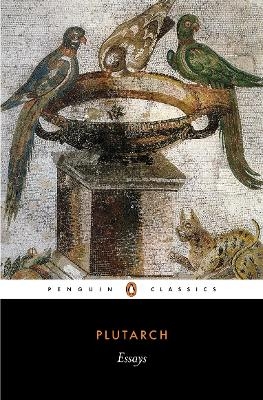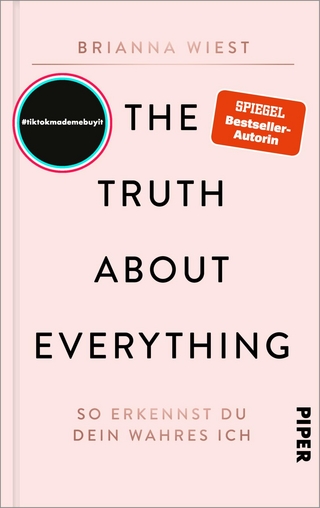
Essays
Seiten
1992
Penguin Classics (Verlag)
978-0-14-044564-0 (ISBN)
Penguin Classics (Verlag)
978-0-14-044564-0 (ISBN)
Plutarch wrote a large number of essays on ethical, scientific, philosophical, ephemeral, historical and literary topics. Even when dealing with technical subjects, the essays reflect the author's particular style - with anecdotes and quotations included.
One of the greatest essayists of the Graeco-Roman world, Plutarch (c. AD 46 -120) used an encyclopedic knowledge of the Roman Empire to produce a compelling and individual voice. In this superb selection from his writings, he offers personal insights into moral subjects that include the virtue of listening, the danger of flattery and the avoidance of anger, alongside more speculative essays on themes as diverse as God's slowness to punish man, the use of reason by supposedly 'irrational' animals and the death of his own daughter. Brilliantly informed, these essays offer a treasure-trove of ancient wisdom, myth and philosophy, and a powerful insight into a deeply intelligent man.
One of the greatest essayists of the Graeco-Roman world, Plutarch (c. AD 46 -120) used an encyclopedic knowledge of the Roman Empire to produce a compelling and individual voice. In this superb selection from his writings, he offers personal insights into moral subjects that include the virtue of listening, the danger of flattery and the avoidance of anger, alongside more speculative essays on themes as diverse as God's slowness to punish man, the use of reason by supposedly 'irrational' animals and the death of his own daughter. Brilliantly informed, these essays offer a treasure-trove of ancient wisdom, myth and philosophy, and a powerful insight into a deeply intelligent man.
PLUTARCH (circa 45 - 125 A.D.) Plutarch is known to have written 227 works of various sorts. Of these, Parallel Lives and Morals have been the most influential for later generations
On listening; how to distinguish a flatterer from a friend; on being aware of moral progress; whether military or intellectual exploits have brought Athens more fame; on the avoidance of anger; on contentment; on God's slowness to punish; on Socrates' personal diety; in consolation to his wife; on the use of reason by "irrational" animals.
| Erscheint lt. Verlag | 24.9.1992 |
|---|---|
| Einführung | Ian Kidd |
| Übersetzer | Robin Waterfield |
| Verlagsort | London |
| Sprache | englisch |
| Maße | 129 x 198 mm |
| Gewicht | 500 g |
| Themenwelt | Literatur ► Essays / Feuilleton |
| ISBN-10 | 0-14-044564-1 / 0140445641 |
| ISBN-13 | 978-0-14-044564-0 / 9780140445640 |
| Zustand | Neuware |
| Haben Sie eine Frage zum Produkt? |
Mehr entdecken
aus dem Bereich
aus dem Bereich
vom Zustand der Debatte in der Digitalmoderne
Buch | Hardcover (2023)
Kiepenheuer & Witsch (Verlag)
CHF 30,80
so erkennst du dein wahres Ich
Buch | Hardcover (2024)
Piper (Verlag)
CHF 26,90
die dunkle Geschichte der reichsten deutschen Unternehmerdynastien
Buch | Softcover (2024)
Kiepenheuer & Witsch (Verlag)
CHF 22,40


